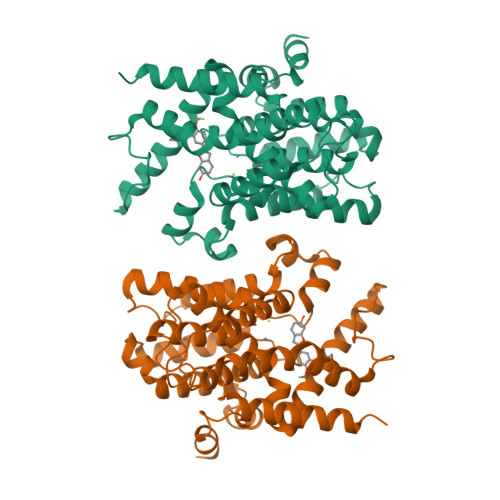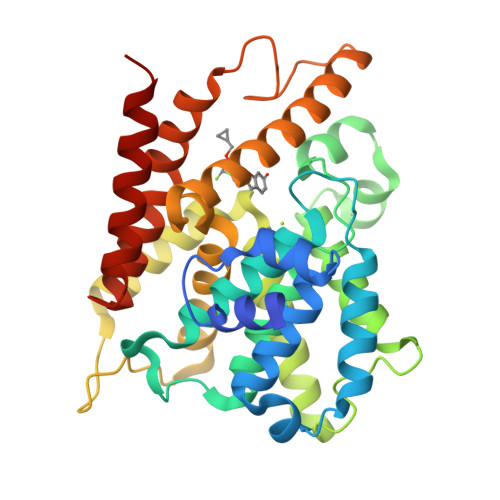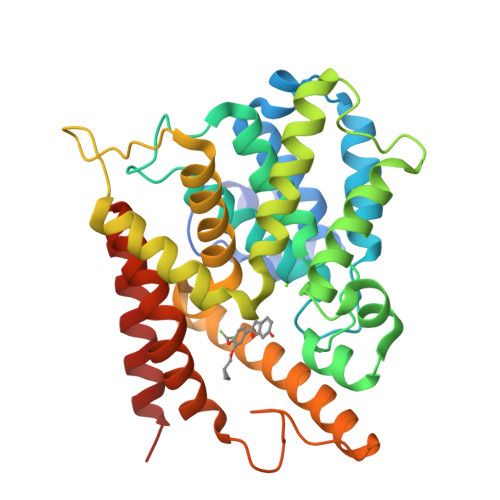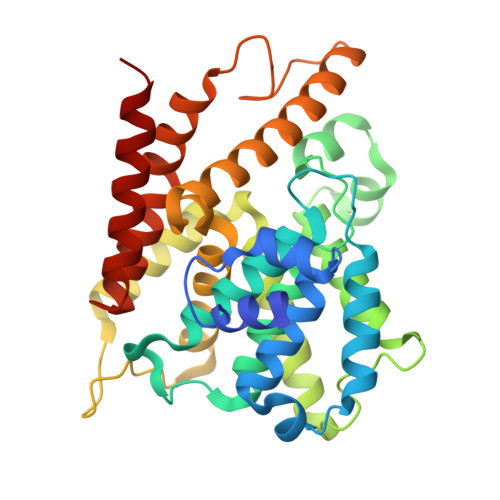5-hydroxymethylcytosine features of portal venous blood predict metachronous liver metastases of colorectal cancer and reveal phosphodiesterase 4 as a therapeutic target.
Xu, N., Gao, Z., Wu, D., Chen, H., Zhang, Z., Zhang, L., Wang, Y., Lu, X., Yao, X., Liu, X., Huang, Y.Y., Qiu, M., Wang, S., Liang, J., Mao, C., Zhang, F., Xu, H., Wang, Y., Li, X., Chen, Z., Huang, D., Shi, J., Huang, W., Lei, F., Yang, Z., Chen, L., He, C., Zhu, H., Luo, H.B., Gu, J., Lin, J.(2025) Clin Transl Med 15: e70189-e70189
- PubMed: 39956959
- DOI: https://doi.org/10.1002/ctm2.70189
- Primary Citation of Related Structures:
8XXS - PubMed Abstract:
Metachronous liver metastases (MLM) are characterised by high incidence and high mortality in clinical colorectal cancer treatment. Currently traditional clinical methods cannot effectively predict and prevent the occurrence of metachronous liver metastasis in colorectal cancer. Based on 5hmC-Seal analysis of blood and tissue samples, this study found that portal venous blood was more relevant to tumour gDNA than peripheral blood. We performed a novel epigenetic liquid biopsy strategy using the 10 5hmC epigenetic alterations, to accurately distinguish MLM patients from patients without metastases. Among these epigenetic alterations, phosphodiesterase 4 (PDE4D) was highly increased in MLM patients and correlated with poor survival. Moreover, our studies demonstrated that PDE4D was a key metastasis-driven target for drug development. Interfering with the function of PDE4D significantly repressed liver metastases. Similarly, roflumilast, a PDE4 inhibitor for chronic obstructive pulmonary disease (COPD) therapy, also inhibits liver metastases. Further studies indicate that blocking the function of PDE4D can affect CRC invasion through the HIF-1α-CCN2 pathway. To develop a more efficient PDE4 inhibitor and reduce the occurrence of adverse events, we also designed several new compounds based on 2-arylbenzofurans and discovered lead L11 with potent affinity for PDE4D and significant suppression of liver metastases. In this work, our study provides a promising strategy for predicting metachronous liver metastasis and discovers L11 as a potential repurposed drug for inhibiting liver metastasis, which have the potential to benefit patients with CRC in the future. KEY POINTS: 5hmC epigenetic markers derived from portal venous blood could accurately predict metachronous metastasis of colorectal cancer. PDE4D was a key metastasis-driven target that promoted metachronous metastasis via the HIF-1α-CCN2 pathway. The newly synthesised compound L11 could specifically inhibit PDE4D and abolish metachronous metastasis of colorectal cancer without obvious toxic side effects.
Organizational Affiliation:
Department of Pharmacy, Peking University Third Hospital, Beijing, China.




















